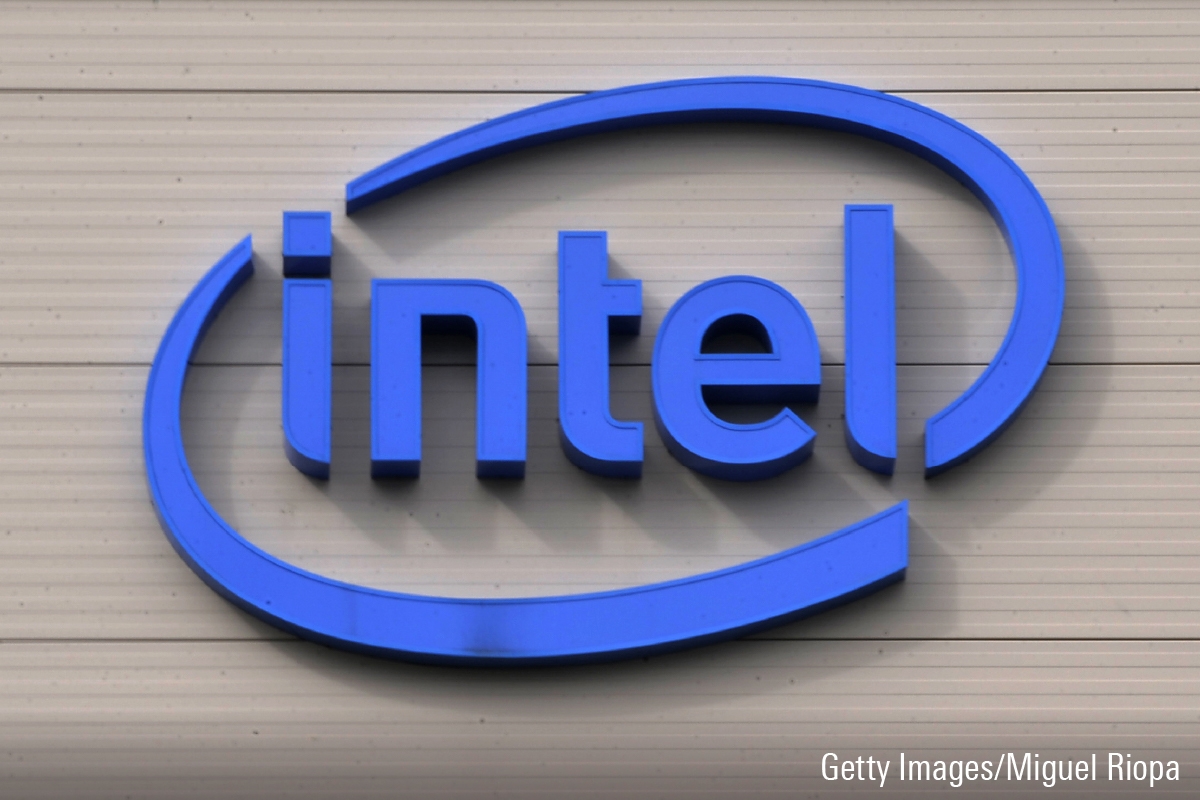Is Competition Holding Back Intel's Stock?
Though AMD and Nvidia may gain market share, Morningstar's analyst thinks this chipmaker is undervalued.

Bulls Say
- Intel is one of the largest semiconductor companies in the world and holds the lion's share of the PC and server processor markets. The company has stayed at the forefront of technology by investing heavily in R&D, and this trend should continue.
- Intel has made a string of savvy acquisitions to build its artificial intelligence and automotive offerings, including Altera, Mobileye, Habana Labs, and Movidius.
- The data center group has indirectly benefited from the proliferation of mobile devices. Server processor sales will be the main driver of growth in the near future.
Bears Say
- Intel is facing significant manufacturing delays and must maintain its process technology competitiveness to prevent market share loss to AMD.
- Intel's inability to break into the smartphone market at a reasonable level is cause for concern, as mobile devices continue to proliferate at the expense of PCs.
- The rise of alternative solutions in the data center is cause for concern, with Nvidia's GPUs being leveraged to accelerate server workloads.
Morningstar Analyst Abhinav Davuluri Says
Intel INTC is the leader in the integrated design and manufacturing of microprocessors found in PCs and servers. With the rise in device interconnectivity, Intel strives to provide the most powerful and energy-efficient silicon solution to any product "smart and connected." The data centers used to facilitate the information stored, analyzed, and accessed by various front-end devices are mostly run with Intel server chips.
Intel historically differentiated itself first and foremost via the execution of Moore’s law, which predicts that transistor density on integrated circuits will double about every two years; this means subsequent chips have substantial power, cost, and size improvements. This scaling advantage has been perpetuated through a higher-than-peer-average budget for research and development and capital expenditures, which allows Intel to control the entire design and manufacturing process in an industry where the majority of competition focuses on only one phase. However, the company had issues with its 10-nanometer process in recent years and subsequently announced that its 7-nm process will be delayed until 2023, opening the door for competitors like AMD to gain share.
As cloud computing continues to garner significant investment, Intel’s data center group has been an indirect beneficiary. Mobile devices are the preferred way to perform computing tasks and access data via cloud infrastructures that require large-scale server build-outs. This development has provided strong tailwinds for Intel’s lucrative server processor business. We believe Intel will experience continued growth in the data center, though competition from AMD and customers designing their own ARM-based silicon is a potent risk.
The proliferation of mobile devices has come at the expense of the mature PC market, Intel’s historical stronghold, with ARM and its cohorts joining AMD as chief rivals. The rise of artificial intelligence has also unleashed a new competitor in Nvidia for specialized chips to accelerate AI-related workloads. Consequently, Intel has built a broad accelerator portfolio via the acquisition of Altera for field-programmable gate arrays, Mobileye for computer vision chips used in cars, and Habana Labs for AI chips.
Key Proprietary Morningstar Metrics
Fair Value Estimate: $65 Star Rating: 4 Stars Economic Moat Rating: Wide Moat Trend Rating: Negative
To read the full analyst report for Intel and 1,500 other stocks, start your free 14-day trial of Morningstar Premium. Learn more about how to read a Morningstar Stock Analyst report here.

/s3.amazonaws.com/arc-authors/morningstar/426795a6-50a8-4320-8dea-8c93d2bfd246.jpg)
/cloudfront-us-east-1.images.arcpublishing.com/morningstar/ROHC7ZXJXZU7LIKGTTYJTD667I.png)
/cloudfront-us-east-1.images.arcpublishing.com/morningstar/TP6GAISC4JE65KVOI3YEE34HGU.jpg)
/cloudfront-us-east-1.images.arcpublishing.com/morningstar/RFJBWBYYTARXBNOTU6VL4VSE4Q.png)
:quality(80)/s3.amazonaws.com/arc-authors/morningstar/426795a6-50a8-4320-8dea-8c93d2bfd246.jpg)